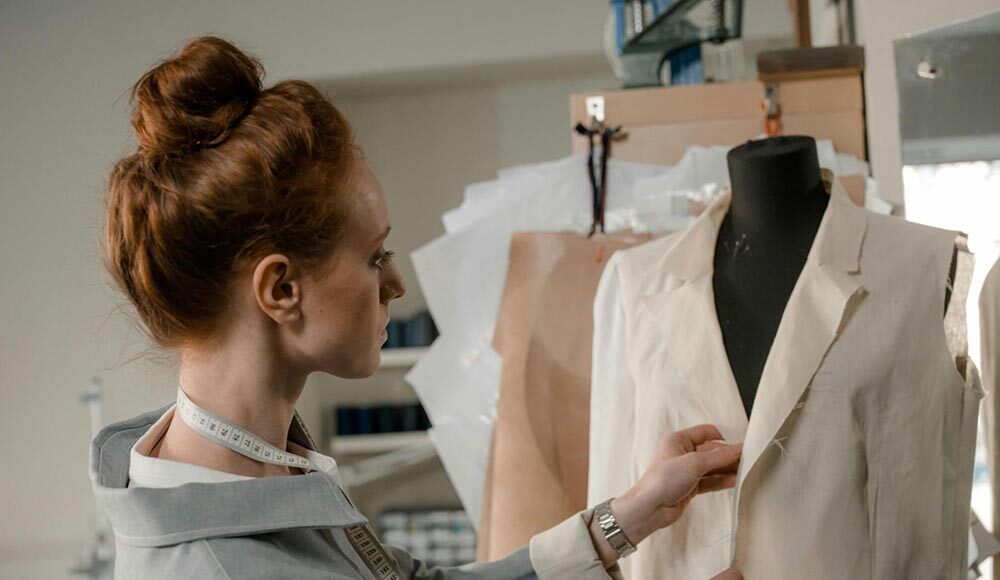The fashion industry thrives on change. New silhouettes emerge every season, trends sweep through social media, and mass production keeps closets filled. Amid all this rapid transformation, it’s easy to forget that true style often lies in the details and those deliberate decisions that favor individuality over conformity. One such detail that continues to hold relevance is bespoke tailoring.
Bespoke clothing isn’t about catching up with fashion trends. It’s about creating a garment that reflects the person wearing it. Even within collections of designer dresses, what sets something apart is the personal touch that shapes how it feels and fits. While off-the-rack clothes serve their purpose for convenience and affordability, they can’t replicate the feeling or fit of a piece crafted entirely from scratch. Bespoke tailoring speaks to a slower, more deliberate approach to dressing. It is an approach that feels especially refreshing in an age where speed dominates most aspects of consumption.
A Personal Approach to Craftsmanship
At the heart of bespoke tailoring is a relationship. It is a collaboration between the tailor and the client. This exchange begins with a conversation. What are the wearer’s needs? What style makes them feel most confident? These questions shape the outcome long before a single stitch is made. A suit, a coat, or even a shirt becomes more than a functional garment. It transforms into an extension of one’s identity.
Unlike made-to-measure clothing, which adjusts standard patterns to fit individual measurements, bespoke tailoring starts from the ground up. Every curve, shoulder angle, and posture is taken into account. The tailor isn’t guessing. They’re building. This level of care produces garments that fit in ways mass production cannot achieve.
Longevity Over Volume
Fast fashion has conditioned many people to believe that clothing should be bought and discarded frequently. A cheap jacket lasts a few months. A pair of trendy pants may seem appealing for a few outings, only to end up at the back of the closet. Bespoke tailoring, by contrast, rejects that cycle.
One of the strongest arguments for bespoke clothing is its longevity. Because these garments are made with high-quality materials and precise construction, they tend to outlast most ready-made items. This durability saves money over time and reduces waste. A consideration is growing more important as sustainability becomes a central topic in consumer behavior.
A well-tailored suit or dress doesn’t need to be replaced every season. Some bespoke garments are worn for decades, occasionally updated or repaired, and rarely discarded. The combination of quality fabric and careful workmanship produces a product that maintains both form and function far beyond industry averages.
Why Bespoke Tailoring Endures Despite Fast Fashion
Mass-market clothing aims to be everything to everyone, which often results in generic outcomes. Bespoke tailoring, on the other hand, is a slow, attentive process. It requires multiple fittings, careful fabric selection, and a high level of dialogue between client and maker. Yet despite, or perhaps because of, these demands, it still holds a powerful place in modern fashion.
In cities known for sartorial sophistication, tailors continue to thrive. There’s a market for those who value intentionality over immediacy, detail over volume. A growing number of people, particularly professionals, are moving away from chasing novelty and gravitating toward quality that lasts.
This mindset is especially visible among those investing in custom garments, whether for daily business wear or special events. Choosing a bespoke suit in Singapore often means working with experienced artisans who understand the subtleties of local climate, social expectations, and personal taste. Rather than relying on templates, tailors build from observation and dialogue. The result is a garment with purpose and personality – one that no mass retailer could replicate.

A Subtle Rebellion Against Homogenization
Wearing bespoke clothing makes a quiet statement. It pushes against the notion that fashion must always be new and mass-produced. It says that quality matters, that style is personal, and that not everything needs to follow the same pattern. This subtle rebellion resonates with people who want to reclaim control over how they present themselves. Instead of blending into the crowd, they choose something tailored entirely to them. The difference may not scream for attention. It speaks volumes about how it makes someone feel.
The appeal isn’t about labels or designer cachet. It’s about clarity and authenticity. Bespoke tailoring brings a refreshing sense of unpredictability to garments that can’t be recreated or mass-marketed.
Despite the dominance of fast fashion giants and algorithm-driven shopping, bespoke tailoring remains resilient. Its future lies not in scale, but in its ability to connect. People will always crave authenticity and something that feels real, made with care, and meant just for them.
As fashion continues to evolve, the quiet craftsmanship of tailoring offers a grounding point. It reminds us that clothing doesn’t need to be loud or fast to be meaningful. It can be measured, intentional, and enduring.
Bespoke tailoring might not fill billboards or dominate social feeds. It continues to serve those who understand that true style is built, not bought.
##




